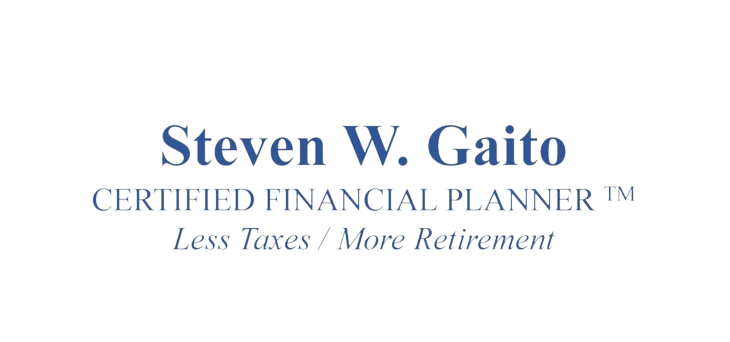In the labyrinth of tax laws and regulations, both high-net-worth individuals and middle-income earners feel impacted by the complex tax system. Each segment argues that the tax code unfairly targets them, fostering a climate of financial unease and uncertainty.
The High-Net-Worth Dilemma
For high-net-worth individuals, the main issue is the progressive tax system. As income rises, so does the tax rate, which is based on equity and the ability to pay. Critics argue this system penalizes success and discourages investment. High earners often use complex tax rules to reduce taxes by investing in tax-advantaged accounts or making charitable contributions. This takes significant time and resources, reinforcing the idea that the tax code is a game to be won rather than a civic duty.
Moreover, taxing income instead of wealth can result in lower taxes for those with significant assets but modest incomes. This has led to calls for broader tax reforms, such as wealth taxes or higher capital gains taxes, to ensure the wealthiest contribute fairly.
The Middle-Income Quandary
Middle-income individuals, on the other hand, often feel squeezed from both sides. They earn too much for many tax benefits meant for lower-income earners but not enough to use the tax strategies available to the wealthy. This group often shoulders a large tax burden, with high tax rates leaving less money for savings, investments, and spending.
Additionally, they bear the brunt of indirect taxes like sales and property taxes, which take a larger portion of their income. Many struggle to boost their finances due to limited flexibility in reducing taxable income, perpetuating paycheck-to-paycheck living.
Finding Common Ground in Reform
The debate over tax fairness underscores the need for comprehensive tax reform. Meaningful change should simplify the tax code and increase transparency for all, ensuring equitable tax distribution between high-net-worth and middle-income individuals. Reform proposals include broadening the tax base, closing loopholes, and targeting wealth more effectively without hindering growth. Enhancing credits and deductions for middle-income earners could provide relief and boost economic activity.
Ultimately, the goal of tax reform should be to create a system that is fair, efficient, and conducive to growth. This requires balancing high-net-worth contributions with fair treatment for middle-income earners. Achieving this balance is no small feat, but it is essential for fostering a sense of equity and solidarity in the tax system.
Focusing on tax-free options, not just tax-deferred ones, boosts long-term financial health for both high-net-worth and middle-income earners. Tax-free investments avoid taxes on earnings or withdrawals, aiding efficient wealth accumulation and planning. Here are key strategies for both groups:
Strategies for High-Net-Worth Individuals
- Roth IRA and Roth 401(k) Contributions: Unlike traditional IRAs and 401(k)s, Roth accounts allow for tax-free growth and withdrawal in retirement, provided certain conditions are met. High earners surpassing Roth IRA income limits can use a backdoor Roth IRA conversion for tax-free benefits.
- Municipal Bonds: Investing in municipal bonds is particularly attractive for high-net-worth individuals. Interest from most municipal bonds is federally tax-exempt, and if issued in the investor’s state, they may be state and locally tax-free too.
- Health Savings Accounts (HSAs): HSAs provide a triple tax benefit: deductible contributions, tax-free growth, and untaxed withdrawals for medical expenses.
- 529 College Savings Plans: These plans allow for tax-free growth and withdrawal of funds when used for qualified education expenses. They are an excellent way for high-net-worth individuals to save for their children’s or grandchildren’s education while enjoying tax benefits.
- Life Insurance Policies: Certain life insurance policies, like whole life and universal life, offer tax-free death benefits to beneficiaries. They also provide tax-free growth of cash value, accessible through loans or withdrawals under specific conditions.
Strategies for Middle-Income Earners
- Roth IRA Contributions: Middle-income earners should prioritize contributions to Roth IRAs to benefit from tax-free growth and withdrawals in retirement. This is particularly beneficial for those who expect to be in a higher tax bracket in the future.
- Roth Options in Workplace Retirement Plans: If available, participating in a Roth 401(k) or Roth 403(b) allows middle-income earners to contribute after-tax dollars in exchange for tax-free withdrawals in retirement, including the earnings.
- 529 College Savings Plans: Just like for high-net-worth individuals, middle-income families can leverage 529 plans for tax-free growth and withdrawals for education expenses. This helps save future education costs in a tax-efficient manner.
- Health Savings Accounts (HSAs): Contributing to an HSA not only reduces taxable income through deductions but also offers a tax-free way to pay for medical expenses. For those with high-deductible health plans, it’s a valuable tool for managing healthcare costs.
- Permanent Life Insurance: The cash value component of permanent life insurance policies grows tax-free and can provide tax-free income through loans or withdrawals, subject to specific policy rules.
By emphasizing these tax-free options, high-net-worth individuals and middle-income earners can take proactive steps toward building a more tax-efficient financial future. Consulting a financial advisor is crucial to tailor strategies to individual circumstances, ensuring compliance with the tax code and maximizing tax-free growth and distributions.

